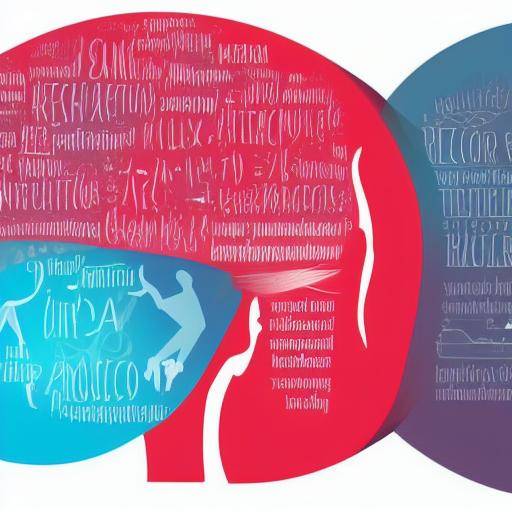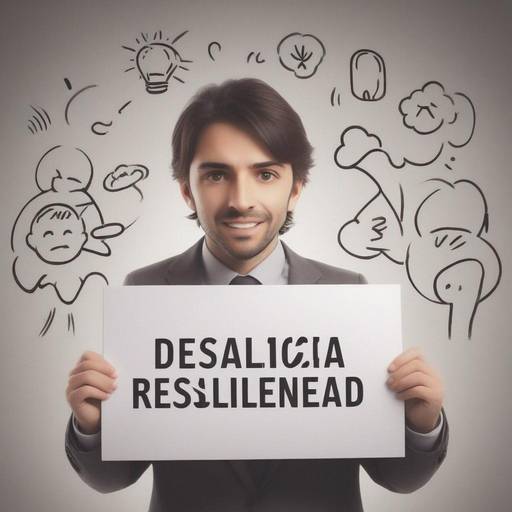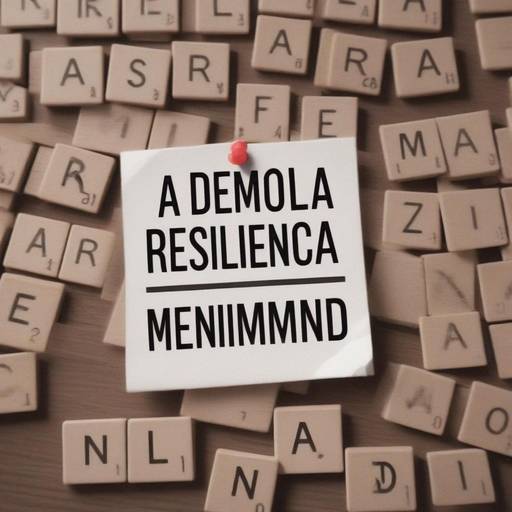
Meditation, a practice that has existed for millennia, has become a valuable tool for strengthening resilience and promoting mental well-being. In this article, we will explore the connection between meditation, resilience and mental well-being, as well as provide practical advice and expert perspectives on how to incorporate meditation into everyday life to foster emotional resilience.
Introduction
Meditation is a practice that has been used by various spiritual cultures and traditions throughout history. As stress and anxiety have become common factors in modern life, full attention and meditation have gained popularity as effective tools to calm the mind and promote emotional resilience. In this article, we will explore how meditation practice can strengthen resilience and its impact on mental well-being. In addition, we will provide practical advice to integrate meditation into everyday life.
History and Background
Meditation has its roots in ancient oriental traditions, such as Buddhism and Hinduism, where it was practiced as a means of achieving spiritual enlightenment. Over the centuries, meditation has spread to various cultures and has adapted to different contexts, including the sphere of mental health and emotional well-being.
The first meditation records date back to India around 1500 BC, where it was practiced as a way of achieving self-realization and self-knowledge. Over the centuries, meditation has been incorporated into various spiritual and philosophical traditions, including Buddhism, Taoism and Yoga.
Analysis in Deep
Meditation offers a wide range of benefits for mental and emotional health. Scientific research has shown that regular meditation practice can reduce stress, anxiety and depression, and improve emotional resilience. By focusing the mind and cultivating full attention, meditation promotes the ability to recover from adversities.
A study published in Psychiatry Research: Neuroimaging suggests that meditation can alter the structure and function of the brain, strengthening areas associated with emotional regulation and resilience. In addition, meditation has been related to a reduction in the activity of amygdala, the region of the brain associated with the response to fear and stress, which can improve the ability to face stressful situations.
Comprehensive review
The application of meditation to strengthen resilience extends to many aspects of modern life, including the working environment, interpersonal relationships and stress management. Meditation practice can foster emotional resilience by promoting self-reflection, acceptance and adaptability.
There is a variety of meditation approaches that can be effective in strengthening resilience, such as full-care meditation, compassion meditation and gratitude-centred meditation. Each approach offers a unique way of cultivating emotional resilience and promoting mental well-being.
Comparative analysis
Meditation and resilience are closely intertwined, as meditation can be seen as a tool to strengthen emotional resilience. While meditation focuses on the practice of full attention and self-reflection, resilience refers to the ability to recover from difficult situations and adapt to the challenges of life. Both share the promotion of emotional balance and the ability to cope with stress and adversity.
On the other hand, mental well-being is the result of a combination of factors, including emotional resilience and mental health. Meditation can be an effective tool to improve mental well-being by promoting tranquility, mental clarity and the ability to face challenges with calm and perspective.
Practical Tips and Accessible Tips
Integrating meditation into daily life can strengthen emotional resilience and improve mental well-being. Here are some practical tips to start:
- Set a regular schedule for meditation: Dedicate a few minutes each day to practice meditation. Establishing a consistent schedule can help create a lasting habit.
- Find a quiet place: Find a quiet place where you can meditate without interruption. It can be useful to create a relaxing environment with soft music, candles or incense.
- Explore different meditation approaches: Experience with different meditation techniques, such as full attention meditation, breathing meditation or compassion meditation, to find the one that best suits you.
- Practice self-compassion: Cultivate compassion towards yourself during meditation. Accept your thoughts and emotions without judging them and recognize your ability to overcome the challenges.
- Look for support: Join meditation groups or look for the guidance of a trained instructor to support you in your meditation practice.
Industry Perspectives and Expert Reviews
Experts on psychology and mental well-being have recognized the positive impact of meditation on promoting emotional resilience and mental well-being. Dr. Elena Martínez, a clinical psychologist specializing in cognitive-behavioral therapy, says: "Meditation can be a powerful tool to strengthen emotional resilience by fostering self-consciousness and emotional management."
Mental health professionals agree that meditation can complement traditional therapies and contribute to a holistic approach to emotional well-being. By integrating meditation into therapy, individuals can develop skills to cope with stress, regulate emotions and promote resilience against adversity.
Case Studies and Practical Applications
Several organizations have incorporated meditation programmes to strengthen the resilience of their employees. Companies such as Google, Apple and Nike have implemented mindfulness and meditation programs to promote mental well-being and reduce stress in the working environment. These programmes have demonstrated significant improvements in productivity, labour satisfaction and the ability to address challenges.
In addition, in the educational field, efforts are being made to integrate meditation into school curricula as a tool to strengthen the emotional resilience of students. Studies have shown that meditation in schools can contribute to reducing stress, improving academic performance and developing skills to meet challenges.
Future Trends and Predictions
As awareness of the importance of mental well-being continues to grow, meditation is expected to play an increasingly significant role in promoting emotional resilience. Increased integration of meditation programmes in labour, educational and health environments is expected to address stress, anxiety and emotional challenges.
In addition, scientific research is expected to continue exploring the benefits of meditation in the promotion of resilience and mental well-being, which could lead to more personalized and evidence-based approaches for the application of meditation in clinical and daily contexts.
Conclusions and FAQs
In conclusion, meditation is a powerful tool to strengthen emotional resilience and promote mental well-being. By cultivating full attention and self-reflection through regular meditation practice, you can develop the ability to cope with stress, regulate emotions and adapt to the challenges of daily life.
Frequently asked questions
What is emotional resilience and how does it relate to meditation?
Emotional resilience refers to the ability to adapt and recover from stressful or traumatic situations. Meditation can strengthen emotional resilience by promoting self-reflection, emotional management and adaptability to challenges.
How long should I meditate to strengthen my emotional resilience?
There is no strict rule on the duration of meditation, but dedicating a few minutes a day to the practice of meditation can be beneficial to strengthening emotional resilience. Consistency and regularity are more important than duration.
Is meditation suitable for all?
Meditation can be beneficial for most people, but it is important to find an approach that suits your needs and preferences. Consultation with a mental health professional or a meditation instructor can be useful in determining the most appropriate approach.
Can I combine meditation with other mental well-being practices?
Yes, meditation can complement other mental well-being practices, such as exercise, therapy or emotional health care. Integrating meditation with other practices can promote a holistic approach to mental well-being.
Does meditation only focus on relaxation?
Although meditation can promote relaxation, its focus goes beyond. Meditation promotes full attention, self-reflection and self-knowledge, which can strengthen emotional resilience and improve mental well-being.
Can I teach my children to meditate to strengthen their emotional resilience?
Yes, meditation can be beneficial for children and adolescents, as it provides them with tools to cope with stress and regulate their emotions. However, it is important to adapt meditation practices to the age and individual needs of children.
Conclusion
Meditation is a valuable tool to strengthen emotional resilience and promote mental well-being. By cultivating full attention, self-pity and self-reflection through the practice of meditation, the ability to cope with the challenges of life can be developed calmly and clearly. Incorporating meditation into daily life can have a significant impact on emotional resilience and mental well-being, offering a powerful way of building resilience against adversity.
In short, meditation offers a path to emotional strength and mental stability, providing people with tools to face the challenges with serenity and adaptability.
In order to optimize emotional resilience and mental well-being, meditation is presented as a powerful and accessible tool of all, capable of providing significant benefits for mental and emotional health.






















































